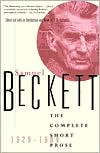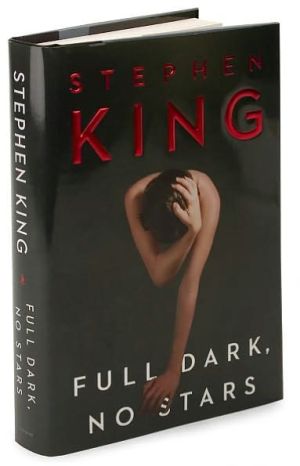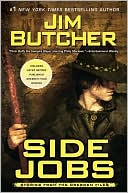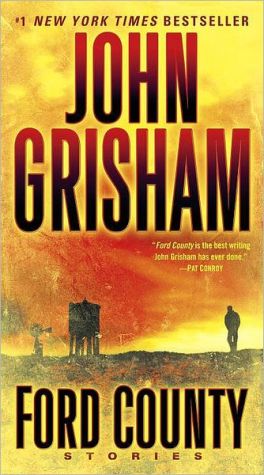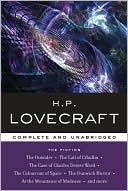The Complete Short Prose, 1929-1989
Nobel prize winner Samuel Beckett is one of the most profoundly original writers of our century. He gives expression to the anguish and isolation of the individual consciousness with a purity and minimalism that have altered the shape of world literature. A tremendously influential poet and dramatist, Beckett spoke of his prose fiction as the "important writing," the medium in which his ideas are most powerfully distilled. Here, for the first time, his short prose is gathered in a definitive,...
Search in google:
Nobel Prize winner Samuel Beckett was one of the most profoundly original writers of the 20th century. He gave expression to the anguish and isolation of the individual consciousness with a purity and minimalism that have altered the shape of world literature. A tremendously influential poet and dramatist, Beckett spoke of his prose fiction as the "important writing," the medium in which he distilled his ideas most powerfully. Here, for the first time, his short prose is gathered in a definitive, complete volume by leading Beckett scholar S. E. Gontarski.Publishers WeeklyIn counterpoint to Beckett's plays, novels and poems is the equally brilliant shorter prose-the stories, soliloquies and depersonalized monologues he wrote throughout his career. Here, collected and edited by the editor of On Beckett: Essays and Criticism, are all three-dozen instances of that prose, only some of which have appeared previously in books; one story, ``The Cliff,'' is debuting here. The earlier entries indicate Beckett's uneasy apprenticeship before he found his voice and a matching style. The Joycean logorrhea of ``Sedento and Quiescendo'' (later part of Dream of Fair to Middling Women) and the conventional narration of ``A Case in a Thousand'' don't achieve much in themselves. Still, as with ``Assumption,'' the earliest piece here, they display the stirrings of a genius that would take shape in the stories of 1946 and in Texts for Nothing, as in Waiting for Godot. Some of the stories-``The End''; ``The Expelled''; ``First Love''; ``The Calmative''-are acknowledged short masterpieces, meandering Cartesian misadventures of minds and bodies stumbling over one another. In later works, Beckett can be seen tracing the further patterns of a mind narrating its disintegration (the ``skull alone in a dark place''), as in ``Imagination Dead Imagine,'' ``Ping'' and a series of eight pieces called ``Fizzles.'' Elsewhere, in ``From an Abandoned Work'' and ``Enough,'' the author's wanderers are curtailed, his ``Lost Ones'' vainly searching a cylindrical prison for an exit, his aged narrators tramping through their memories. In the closing ``Stirrings Still,'' written at age 82, Beckett refines and intermingles these elements in a despairing, delightful voice that struggles with what its owner called its ``obligation to express.'' Despite some juvenilia and curiosa, this is an invaluable one-volume addition to the Beckett shelf. (Jan.)
Introduction. From Unabandoned Works: Samuel Beckett's Short ProseAssumption (1929)3Sedendo et Quiescendo (1932)8Text (1932)17A Case in a Thousand (1934)18First Love (1946)25Stories (from Stories and Texts for Nothing, 1955)The Expelled (1946)46The Calmative (1946)61The End (1946)78Texts for Nothing (1-13) (1950-52)100From an Abandoned Work (1954-55)155The Image (1956)165All Strange Away (1963-64)169Imagination Dead Imagine (1965)182Enough (1965)186Ping (1966)193Lessness (1969)197The Lost Ones (1966, 1970)202Fizzles (1973-75)Fizzle 1: [He is barehead]224Fizzle 2: [Horn came always]229Fizzle 3: Afar a bird232Fizzle 4: [I gave up before birth]234Fizzle 5: [Closed place]236Fizzle 6: [Old earth]238Fizzle 7: Still240Fizzle 8: For to end yet again243Heard in the Dark 1247Heard in the Dark 2250One Evening253As the story was told (1973)255The Cliff (1975)257neither (1976)258Stirrings Still (1988)259Appendix I: Variations on a "Still" PointSounds (1973)267Still 3 (1973)269Appendix II: Faux Departs (1965)271Appendix III: NonfictionThe Capital of the Ruins (1946)275Notes on the Texts279Bibliography of Short Prose in English287Illustrated Editions of Short Prose293
\ Publishers Weekly\ - Publisher's Weekly\ In counterpoint to Beckett's plays, novels and poems is the equally brilliant shorter prose-the stories, soliloquies and depersonalized monologues he wrote throughout his career. Here, collected and edited by the editor of On Beckett: Essays and Criticism, are all three-dozen instances of that prose, only some of which have appeared previously in books; one story, ``The Cliff,'' is debuting here. The earlier entries indicate Beckett's uneasy apprenticeship before he found his voice and a matching style. The Joycean logorrhea of ``Sedento and Quiescendo'' (later part of Dream of Fair to Middling Women) and the conventional narration of ``A Case in a Thousand'' don't achieve much in themselves. Still, as with ``Assumption,'' the earliest piece here, they display the stirrings of a genius that would take shape in the stories of 1946 and in Texts for Nothing, as in Waiting for Godot. Some of the stories-``The End''; ``The Expelled''; ``First Love''; ``The Calmative''-are acknowledged short masterpieces, meandering Cartesian misadventures of minds and bodies stumbling over one another. In later works, Beckett can be seen tracing the further patterns of a mind narrating its disintegration (the ``skull alone in a dark place''), as in ``Imagination Dead Imagine,'' ``Ping'' and a series of eight pieces called ``Fizzles.'' Elsewhere, in ``From an Abandoned Work'' and ``Enough,'' the author's wanderers are curtailed, his ``Lost Ones'' vainly searching a cylindrical prison for an exit, his aged narrators tramping through their memories. In the closing ``Stirrings Still,'' written at age 82, Beckett refines and intermingles these elements in a despairing, delightful voice that struggles with what its owner called its ``obligation to express.'' Despite some juvenilia and curiosa, this is an invaluable one-volume addition to the Beckett shelf. (Jan.)\ \ \ \ \ Library JournalNobel Prize winner Beckett's prose, most especially his stories, historically have taken a back seat to his theatrical works and poetry. The works in this collection, eloquent distillations of the writer's ideas, clearly demonstrate how unfortunate this oversight has been. To be fair, however, the complex publishing history-wherein some stories were published in a variety of collections, while others appeared only in journals, and still others were grouped in poetry or drama collections-and the adaptation of many of these works for stage or radio contributed to the lack of a cohesive understanding of Beckett's legacy. In addition to bringing these scattered works together, Beckett scholar Gontarski (editor of The Beckett Studies Reader, Univ. Pr. of Florida, 1993, among others) goes to great lengths to explain the genesis of the pieces in an introduction offering historical context and in copious notes and appendixes. While libraries may already hold most of these works, this work is well worth the investment for its comprehensive approach. Recommended for all collections.-Eric Bryant, "Library Journal"\ \ \ David Gates''Samuel Beckett: The Complete Short Prose, 1929-1989'' shows that Beckett was only briefly, and probably accidentally, a reader-friendly writer. -- New York Times\ \
